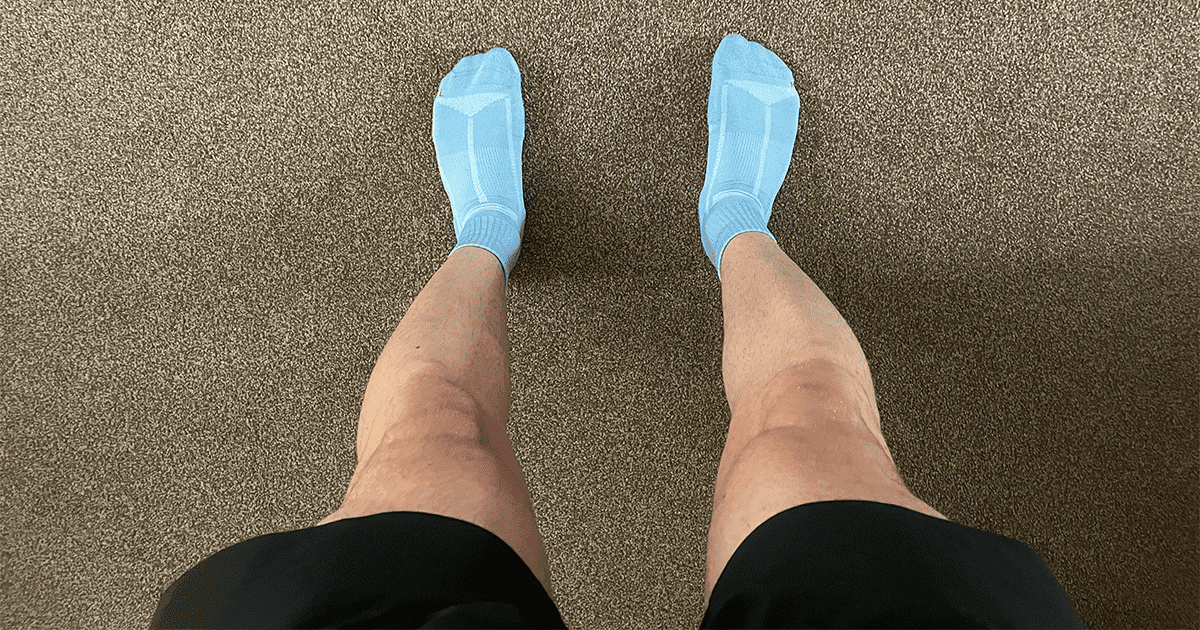How to stick to your new year’s resolution in 2020
Run five times a week? Lose weight? Run a marathon? Stop smoking? – Here’s how to stick to your new year’s resolution in 2020.

It’s almost that time again – time to set a new year’s resolution, this time in 2020! Unfortunately, past studies consistently show as little as 25% of people staying committed to their resolutions after only 30 days.
However, a lot of these resolutions fail as they are set for the wrong reasons. Have you fallen victim to either setting a resolution based on someone else’s expectation or opinion, setting too vague new year’s resolutions, or perhaps working towards one big goal instead of multiple smaller ones?
Do you want to be another statistic or do you want to be one of the few who achieve their resolutions in the new year? Whether you’re looking to lose weight, get fit, stop smoking, or even run an ultra-marathon then this article is for you.
Let us make our future now, and let us make our dreams tomorrows reality -Malala Yousafzai
Related: 6 Top tips for sticking with a training plan.
Make resolutions you can actually keep
According to the American psychological association (APA), we should be starting off small – setting resolutions we can actually keep. For example, setting a resolution such as running five times per week when you’re not running at all is unrealistic, you must build-up to this point. Instead, decide to start running, building up to 5 days a week as the year goes on.
Remember, chances are if you’re not enjoying it you’re not going to stick to it – don’t give yourself a reason to quit.
APA mentions that by creating these realistic new year’s resolutions, we are in fact more likely to stick to them throughout the year. Give yourself a fighting chance and be smart in the resolutions you set.
Break your new year’s resolution into smaller chunks
As with goal setting, we should be breaking down our new year’s resolutions into smaller more achievable goals. According to Harvard medical school, breaking down your new year’s resolution moves you forward towards your final goal.
For example, if you’re planning on shedding a few pounds, it may be worth setting a weekly and a monthly weight goal, ultimately helping us to work towards our final goal of losing a specific amount of weight.
Set time aside to work towards your resolution

If you’re not ready to change, chances are you won’t. However, if you are ready to commit, ensure you do just that. Make the time, put in the work, and feel great for it.
Using the previous example of losing weight, it would be recommended to set aside 30-60 minutes each day to exercise, whether this is running, cycling, hitting the gym, or even taking a long walk.
Related: What types of cross-training should I include as a runner?
However, we can be more specific than that. Set a specific time, whether this is in the morning, during your lunch break, or in the evening, schedule in your workout like you would anything else. Doing so increases the likelihood of actually performing the given behaviour – a necessity to achieving your new year’s resolution in 2020.
SMARTER
The SMARTER principle is commonly used for goal-setting, designed to increase the likelihood of individuals sticking to their goals. We can apply the exact same principle when setting new year’s resolutions. After all a resolution is simply one big goal.
So, what does SMARTER actually stand for?
Specific
Your resolution must describe exactly what you would like to achieve and the outcome which is expected.
Tip: Write down your resolution and show others – do they understand your resolution? Do they recognise what you’d like to achieve? If so, chances are it’s specific!
Measurable
How will you measure your resolution? Is this weight loss, distance ran, time spent in the gym, or perhaps days you’ve worked out? It’s best to work towards the following question: How will I know that my resolution has been completed? If you can’t answer this question then your new year’s resolution is not measurable.
Attainable
Your resolution/goal should be challenging, but not impossible. Setting a new year’s resolution which is too far out of reach will only decrease your motivation towards achieving it.
For example, setting a goal to run an ultra-marathon in the new-year with no prior running experience is most likely unattainable. Instead, you may want to first set a goal to run a marathon – difficult, however, not impossible – keeping up your motivation to train and work towards your resolution.
Relevant
To set a relevant new year’s resolution, the resolution itself must matter to you. For example, if you’re looking run a marathon yet have no interest in running, chances are you’re most likely not going to stick to it. If possible, choose activities which you enjoy the most, or alternatively find ways to enjoy them more.
Time
Presumably, your time frame for your new year’s resolution is by the end of the year, however, as discussed previously if you’re able to be as specific as possible, this will increase the likelihood of you actually sticking to it.
Likewise, you should look to provide a time frame for the smaller goals within your resolution. This will allow you to become more accountable while actually giving you something to work towards – not to mention making that big goal of yours to seem much smaller in the grand scheme of things.
Evaluated
If you can’t evaluate your resolution, how will you know if you are on the right track within the given time frame? Once again, this relates back to setting smaller goals throughout the year in-build-up to your ultimate goal. However, do make sure these can be measured!
Recorded/Rewarded

What would be a successful resolution and how are you going to measure this? For example, it could be as simple as participating in a marathon or a little more complex such as losing a set amount of weight throughout the year.
If you don’t have a method of recording your new year’s resolution, you’ll never know if it was a success or a failure.
Finally, it is important to reward yourself throughout the new year even for the smallest of successes – especially towards the beginning of the year. Rewarding yourself whether this is your favourite Netflix movie, an extra-long bath, or a small chunk of chocolate from time to time will work wonders towards increasing your motivation.
Related: How to stay motivated year-round to run and train.
Receive support
Whether your resolution in the new year is going well or not, surrounding yourself with the right people and receiving positive support and feedback is essential to not fall off the wagon.
Choose your inner circle well, whether this is your family, running buddies, or even work friends, try your best to surround yourself with positive, supportive, and caring people who will help you through those tough times.
Put yourself in the driver’s seat
If you’re not in control, chances are you won’t stick to your resolution. While others can support you along the way, provide positive feedback, and push you at times when you didn’t think possible, ultimately it’s down to you.
Therefore, it’s important to take control. You set the schedule and you set the goals. After all, you are the one working towards them. There’s one simple way to achieve this.
Take responsibility.
While it can be tough taking responsibility, especially when sometimes going for a run, hitting the gym, or eating healthy, it’s essential to taking control and achieving your goals in the new year.
Don’t give up

No matter how tough your new year’s resolution gets, it’s important never to give up! You set it for a reason, you wanted to accomplish something and wanted to better yourself… don’t let that getaway.
While it’s almost inevitable that you’ll fall off the wagon once or twice along the way, don’t let this dishearten you – it’s all part of the process and will only make you stronger when it comes to sticking and working towards goals in the future.
The bottom line
Whatever your resolution in 2020, just know you can do it! However, make sure to follow this guide, set realistic goals, and most importantly never give up! No matter how difficult it may seem, if others can do it you can too.

Matthew is a lifelong runner, chief tester of all products, the founder of Running101, and freelance content writer for active brands. When he’s not writing, he enjoys lifting weights, cycling in the Lake District, and watching fast cars drive in circles on a Sunday. He also has a BA in sport, exercise and physical activity from the University of Durham.




